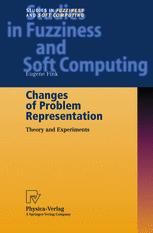

Most ebook files are in PDF format, so you can easily read them using various software such as Foxit Reader or directly on the Google Chrome browser.
Some ebook files are released by publishers in other formats such as .awz, .mobi, .epub, .fb2, etc. You may need to install specific software to read these formats on mobile/PC, such as Calibre.
Please read the tutorial at this link: https://ebookbell.com/faq
We offer FREE conversion to the popular formats you request; however, this may take some time. Therefore, right after payment, please email us, and we will try to provide the service as quickly as possible.
For some exceptional file formats or broken links (if any), please refrain from opening any disputes. Instead, email us first, and we will try to assist within a maximum of 6 hours.
EbookBell Team

4.8
84 reviewsThe purpose of our research is to enhance the efficiency of AI problem solvers by automating representation changes. We have developed a system that improves the description of input problems and selects an appropriate search algorithm for each given problem. Motivation. Researchers have accumulated much evidence on the impor tance of appropriate representations for the efficiency of AI systems. The same problem may be easy or difficult, depending on the way we describe it and on the search algorithm we use. Previous work on the automatic im provement of problem descriptions has mostly been limited to the design of individual learning algorithms. The user has traditionally been responsible for the choice of algorithms appropriate for a given problem. We present a system that integrates multiple description-changing and problem-solving algorithms. The purpose of the reported work is to formalize the concept of representation and to confirm the following hypothesis: An effective representation-changing system can be built from three parts: • a library of problem-solving algorithms; • a library of algorithms that improve problem descriptions; • a control module that selects algorithms for each given problem.